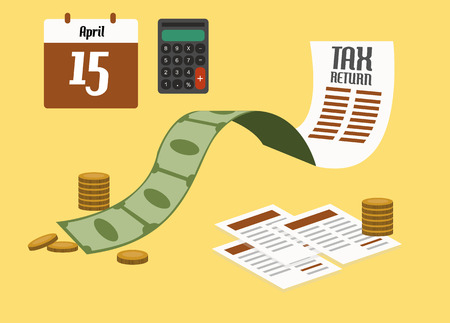Happy New Year! If you’re like most small business owners you’ve probably started to wonder what your tax situation is going to look like this year. Will you owe or will you be receiving a check? What about W2s? Did you forget to save any receipts and when should you start filing your taxes?
After all, if you’re a business owner, you know that running your business takes a big chunk of your time. You’ve got to pay salaries, vendors, utilities, rent, while still juggling all of your clients needs –– all at the same time. So who has time to remember when to pay their taxes?
This article and video should help answer your questions.
Federal Tax Deadlines
If you’re a sole proprietor, a CA C Corporation, a CA S Corporation, an LLC, or any other entity, your business must file an annual federal income tax return.
If you’re self-employed, you work for yourself, and your net earnings were more than $400 for the year, you also must pay self-employment taxes, which is your share of your Social Security and Medicare taxes that your employer would pay.
The quarterly deadlines for federal taxes are:
- April 15th for income generated between January 1st to March 31st
- June 15th for income from April 1st through May 31st
- September 15th for June 1st to August 31st
- And January 15th for September 1st to December 31st
These deadlines are based on the first quarter during which you earn taxable income for the year and also include your self-employment tax.
State Tax Deadlines
Your business also should pay both California state sales and any corporation taxes.
The deadlines for state taxes are the same for quarterly federal taxes as shown above:
- April 15th
- June 15th
- September 15th
- Plus January 15th
If you’re not sure what either your quarterly federal taxes or how much your state quarterly taxes should be, we can help you figure these amounts out, which can vary quarter to quarter and year to year.
Estimated Taxes Deadlines
If you earn income throughout the year, you must pay your taxes on your income, including self-employment tax, by making regular payments of estimated taxes throughout the year.
Your estimated taxes are due the same dates as your quarterly taxes shown above for both state and local taxes. But if you receive a sizable federal or state refund, you may choose to apply that amount towards your estimated taxes.
However, if your employer deducts withholding tax from your paychecks and this amount generally covers what taxes are due, you may not have to pay estimated taxes.
Also, if you did not owe any taxes during your previous fiscal year, you may not have to pay any estimated quarterly taxes.
In addition, if you are a California S or C Corporation and pay monthly taxes through a payroll service, you may not have to pay estimated taxes either.
In any case, we highly recommend moving some of your income into a savings account throughout the year, so that you can pay your entire amount of 2016 estimated taxes and/or your actual taxes when they are due.
San Rafael Tax Help for Small Businesses
Though every company needs to pay federal, state, and estimate taxes, each individual’s or business’s needs are different, depending on how much you earn in each quarter, what your deductions are, what your tax bracket may be, and whether you file as an individual, a corporation, or an LLC.
At Books In Balance we also offer comprehensive accounting, bookkeeping, budgeting, cash flow and financial analyses, payroll, bill paying, tax preparation services and more for you, your business, and/or your family. Give us a call at 415-455-9455 to set up your free consultation.
- Preparing Your Tax Documents - February 1, 2024
- Making of a Successful Team Environment - December 31, 2023
- Got a Mistake on Your Tax Returns? - September 3, 2023

